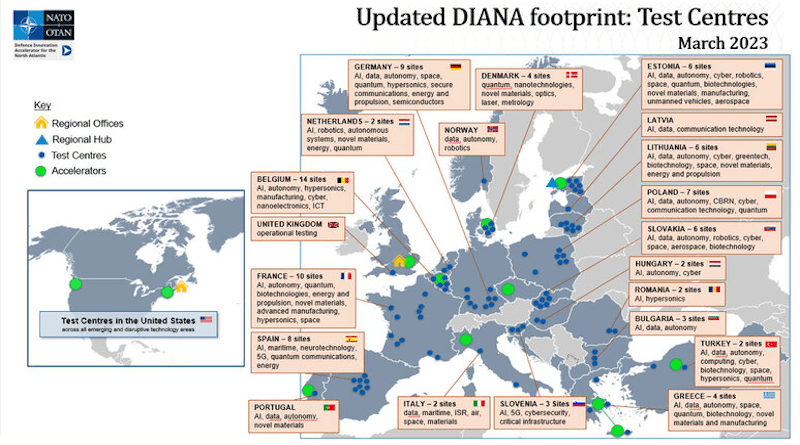NATO’s DIANA Expands Transatlantic Footprint, Gears Up For First Challenges
To harness the best of new technology for Alliance security and defence, NATO agreed at the 2021 Brussels Summit to create a unique transatlantic innovation ecosystem.
Since its inception, NATO’s Defence Innovation Accelerator for the North Atlantic’s (DIANA) network of affiliated accelerators and test centres has now grown to more than 100 sites, spread across almost all Allied countries. This major step forward was recently achieved after DIANA Board of Directors agreed to include an additional 28 deep-tech test centres in a number of Allied countries, and two additional start-up accelerator sites in North America.
David Van Weel, NATO’s Assistant Secretary General for Emerging Security Challenges and DIANA’s interim Managing Director welcomed these additions, stressing that “the diverse geographic locations of these sites will enable us to collaborate with the best and brightest innovators across the Alliance to design cutting-edge technological solutions to specific defence and security challenges”.
Starting in the autumn 2023, DIANA will implement its first challenge programmes in cooperation with the following accelerator sites, pending conclusion of the necessary contractual arrangements:
- Tehnopol in Tallinn;
- Officine Grandi Riparazioni (OGR) in Turin;
- BioInnovation Institute (BII) in Copenhagen;
- MassChallenge in Boston;
- Pacific Northwest Mission Acceleration Center (PN MAC) in Seattle.
A call for innovator-participants for DIANA’s pilot challenge programmes will be issued in mid-2023. Up to 30 challenge awardees will be selected to participate. The number of challenges and awardees will grow each year until the programme is fully operational in 2025. DIANA’s transatlantic accelerator and test centre network will also continue to grow.

